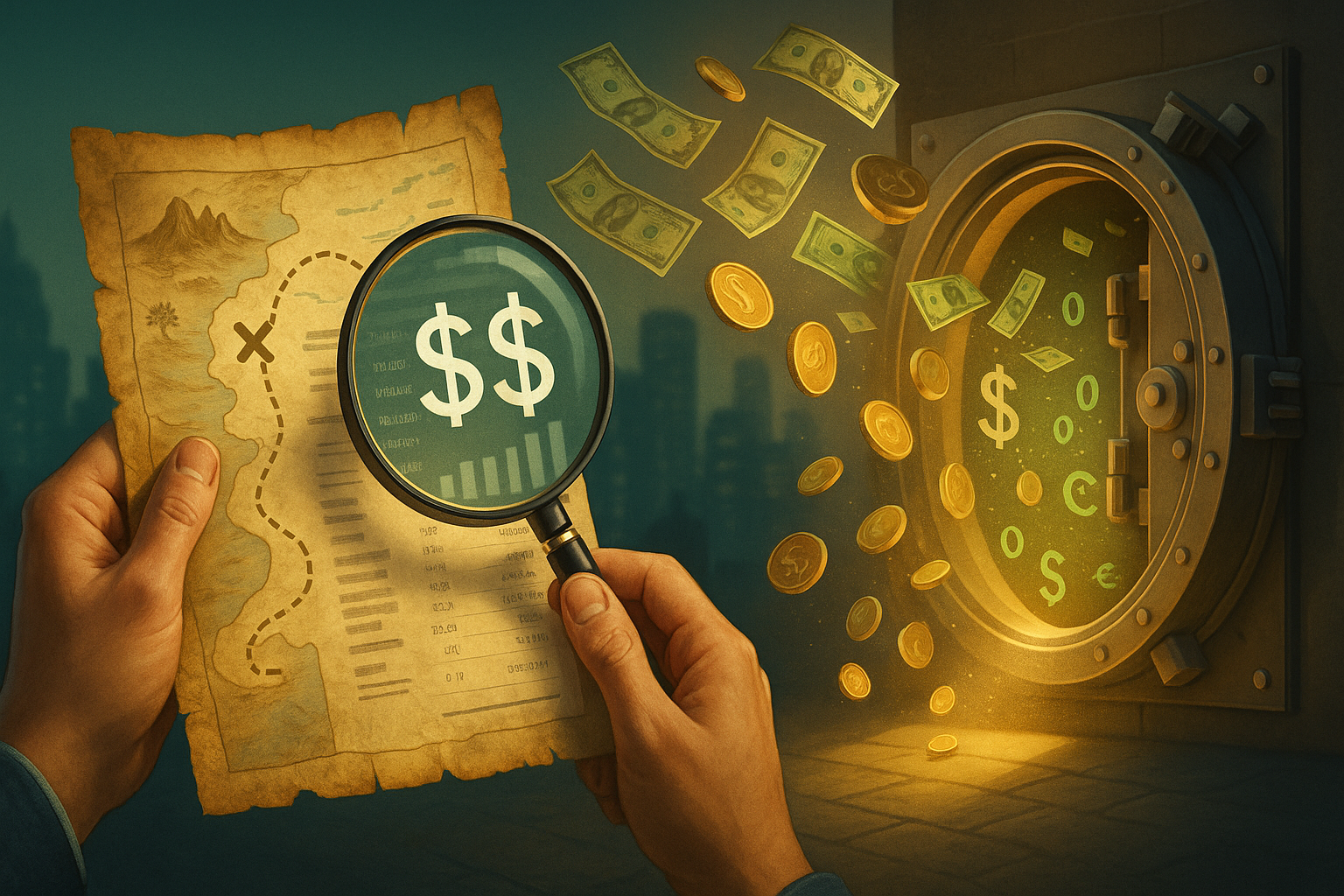My Forgotten PayPal Jackpot
$1,247.38. That was the balance waiting for me in a PayPal account I hadn’t touched since my freelance days in college. I was on a digital cleaning spree, unsubscribing from old newsletters and deleting apps, when I decided to try logging in. After a few password guesses, I was in. And there it was. A final client payment from nearly a decade ago that I had completely forgotten about.
For a moment, I was sure it was a glitch. But it was real. It was my money, just sitting there. That discovery sent me down a rabbit hole. If I could completely forget about more than a thousand dollars, what else was out there, forgotten by people just like me? It turns out, my small windfall was just a single drop in a massive, multi-billion-dollar ocean of unclaimed cash.
Why States Are Sitting On Your Cash
Here’s a number that should make you pause: $4 billion. That’s the mountain of money currently held by state agencies in what’s called ‘unclaimed property.’ This isn’t a government handout or a lottery prize. It’s your money. It’s from a savings account you forgot to close, a utility deposit from an apartment you lived in years ago, a final paycheck from a summer job, or even stock dividends you never knew you had.
When a business can’t contact you after a certain amount of time, they are legally required to hand your money over to the state for safekeeping. The state holds it until you, the rightful owner, come looking for it. But here’s the catch: unlike your taxes, nobody’s sending you a letter about this. It’s up to you to uncover the treasure. And claiming it is simpler than you’d ever imagine. There are no fees, no complicated forms, just a straightforward process to get back what’s yours.
The Money Hiding in Plain Sight
This isn’t some rare fluke. The National Association of Unclaimed Property Administrators estimates that 1 in every 10 people in the U.S. Has money waiting for them. Think about your ten closest friends or family members. Statistically, one of them has unclaimed cash sitting in a vault. And it could just as easily be you.
It’s not just old bank accounts. The sources are everywhere. That 401(k) from the job you only held for a year? The federal tax refund that never made it to you after you moved? The small balance from a class-action lawsuit you vaguely remember? These little financial loose ends add up, creating a vast pool of forgotten assets that are just waiting to be claimed by their rightful owners.
How One Skeptic Found $2,300 Before Lunch
I was scrolling through a personal finance forum a few months ago and saw a post that stopped me. A guy, a 28-year-old software developer, said he’d read an article just like this one over his morning coffee. “I was just killing time,” he wrote, “never actually thought I’d find anything.” He was bored and skeptical, but he clicked the link to his state’s unclaimed property site.
He typed in his name. Nothing. Then his mom’s name, which turned up $58 from an old utility deposit. Then, on a whim, he typed in the name of his grandfather, who had passed away a few years earlier. His heart skipped a beat. Three results popped up. An uncashed dividend check for $150. A dormant savings account holding $450. And then, the big one: a life insurance policy he never knew existed, worth over $1,700. In less than twenty minutes, he had started the claim process for nearly $2,300 for his family. His search began with doubt and ended with a shocking discovery.
Your 5 Minute Treasure Hunt
Are you ready to see if you’re one of the 1 in 10? Most people hear about this and think, “That won’t be me,” or assume it’s too complicated. That’s the mental hurdle that keeps billions of dollars sitting in government vaults. You’re going to bypass that by taking action right now. This won’t cost you a dime, and it takes less time than it took to read this article.
A final, crucial warning: you should never have to pay a fee to find or claim your own money. If any website asks for a credit card number or a “finder’s fee,” it’s a scam. Close the page. The official sources are always 100% free. Now go see what’s waiting for you.

